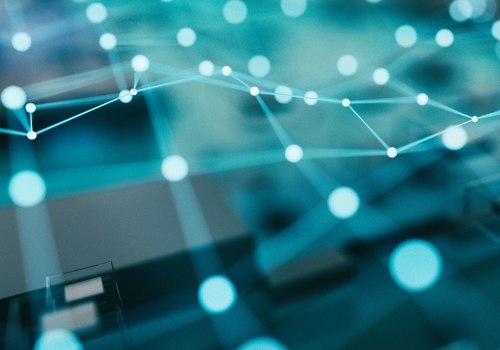The Artificial Justice Network (AJN) is a revolutionary technology that has the potential to transform the legal system as we know it. With its ability to analyze vast amounts of data and make decisions based on complex algorithms, the AJN promises to bring efficiency and fairness to the justice system. However, like any new technology, there are potential drawbacks that must be considered before fully implementing the AJN.
The Rise of Bias
One of the main concerns surrounding the Artificial Justice Network is the possibility of bias in its decision-making process. While the AJN is designed to be impartial and objective, it is still created and programmed by humans who may have their own biases and prejudices. Another potential drawback is the impact of debt consolidation loans on the decision-making process, as individuals with higher levels of debt may be more likely to receive unfavorable outcomes.This can lead to biased outcomes, especially in cases where the data used to train the AJN is itself biased. For example, if the AJN is trained using historical data that reflects systemic discrimination against certain groups, it may perpetuate this bias in its decisions. This could lead to unfair treatment of individuals from marginalized communities, further perpetuating existing inequalities in the justice system.
Lack of Transparency
Another potential drawback of the Artificial Justice Network is its lack of transparency. Unlike human judges who must provide reasons for their decisions, the AJN's decision-making process is based on complex algorithms that are not easily understandable by the average person. This lack of transparency can make it difficult for individuals to challenge or appeal decisions made by the AJN. In addition, since the AJN is constantly learning and updating its algorithms, it may be difficult to pinpoint exactly how a decision was reached.This can be problematic in cases where there are errors or biases in the AJN's decision-making process.
Privacy Concerns
The Artificial Justice Network relies on vast amounts of data to make decisions. This data may include sensitive personal information such as criminal records, financial information, and social media activity. While the AJN is designed to protect this data, there is always a risk of data breaches or misuse. In addition, the use of AI in the justice system raises concerns about the erosion of privacy rights. With the AJN making decisions based on personal data, individuals may feel that their privacy is being violated and that they have no control over how their data is being used.Limited Human Interaction
One of the key benefits of the Artificial Justice Network is its ability to process large amounts of data quickly and efficiently.However, this also means that there is limited human interaction in the decision-making process. While this may lead to faster and more consistent decisions, it also means that there is no room for empathy or understanding of individual circumstances. In cases where there are extenuating circumstances or mitigating factors that may not be reflected in the data, the AJN may not be able to take these into account. This can lead to decisions that are not in line with the principles of justice and fairness.
Cost and Accessibility
The implementation of the Artificial Justice Network comes with a significant cost. This includes not only the initial investment in technology and training but also ongoing maintenance and updates.This cost may be prohibitive for smaller courts or jurisdictions, limiting access to this technology for those who need it most. In addition, there may be accessibility issues for individuals who do not have access to technology or are not familiar with using it. This could lead to a digital divide in the justice system, where those who are already marginalized may face further barriers in accessing justice.
Conclusion
The Artificial Justice Network has the potential to bring significant improvements to the justice system. However, it is important to carefully consider and address the potential drawbacks before fully implementing this technology. Steps must be taken to ensure that the AJN is free from bias, transparent in its decision-making process, and respects privacy rights.In addition, there must be a balance between the use of AI and human interaction in the justice system to ensure that decisions are fair and just for all individuals.



